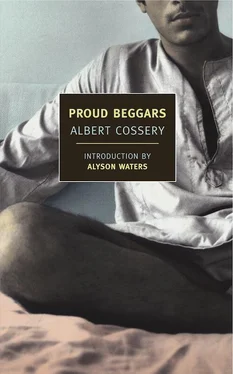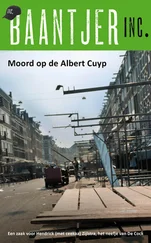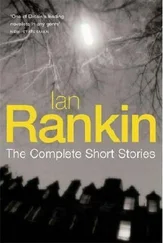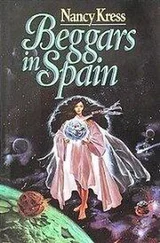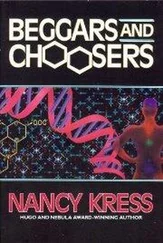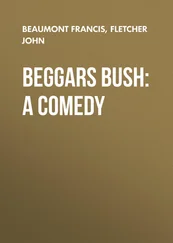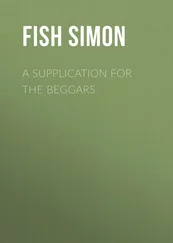“Have they arrested the killer?”
“No,” answered Naila.
“What a frightful story!” said El Kordi. “When I think that it could have been you.”
“That would have been a happy event; no one would have cried for me.”
“Don’t say such nonsense. I will never leave you alone, my darling. From now on, I will always be close to you.”
“By Allah! You’re the one talking nonsense. What will happen to the ministry deprived of your superior mind?”
“The ministry can go to hell! I’ve found another way to make money. I’ll tell you about it later.”
The medical examiner returned, looking less feverish. Nevertheless, he seemed anxious, still under the influence of a carnal vision that would affect his life.
“Nothing new?” the inspector asked.
“For the moment, nothing,” answered the examiner. “I’ll send you my report after the autopsy tomorrow. I’m going now. Peace be with you.”
“Would the good doctor like a cup of coffee?” offered Set Amina. “You can’t leave like that. By Allah! Do us the honor.”
“Thank you very much,” he replied. “But really, I’m in a hurry; another time.”
“Tell me, woman!” Nour El Dine exploded. “When will you understand that this is not a courtesy call. I already told you to be quiet.”
“Very well, Excellency. I understand. After all, I’m only doing my job; I wanted to be pleasant.”
“Shall we start the questioning?” asked the clerk.
Nour El Dine looked at him vacantly, as if he didn’t understand. What questioning? He had totally forgotten that abject, ridiculous comedy. Still, he would have to begin; routine demanded it. It was especially this dirty, depressingly ugly clerk who sickened him. Nour El Dine dreamed of a beautiful young man for his clerk; with this sinister fellow, justice made no sense.
He motioned for one of the customers to approach, the so-called friend of the minister. The man stood up and marched toward the inspector with a robot’s jerky step, mumbling unintelligible words. He was a skinny fellow wearing a threadbare suit and a dirty, crumpled tarboosh. He planted himself reproachfully before the inspector.
“You can’t do this to me,” he cried. “You don’t know who I am.”
“Shut up,” Nour El Dine said calmly.
“You don’t know who I am, I tell you.”
“And I’m telling you to shut up. Only answer when I ask you to.”
“Me, shut up! Never. When you know who I am, you will beg my forgiveness.” He pounded his chest as if to show his importance.
“Well! Let’s be done with it. Tell me who you are,” Nour El Dine brought himself to ask.
The man breathed deeply and said in a voice trembling with pride, “I am a debt collector.”
For a moment El Kordi looked at the scene without fully grasping its burlesque side. He had an intuition that somewhere the mechanism of humor had been set in motion, but he remained a stranger to the thing, still refusing to understand. For a few seconds he hesitated to laugh, then suddenly, all the absurdity of the situation, all the savor contained in this professional pride burst on him, and he broke into an irrepressible laugh.
The so-called friend of the minister stopped gesticulating and shouting; he seemed to be struck with horror, as if El Kordi’s laugh had flayed his noble dignity. This new insult left him without a reply. He glared at El Kordi in complete incomprehension. The thought that anyone could laugh at him — a debt collector! — was an unspeakable outrage.
No one besides El Kordi laughed; moreover, no one understood the reason for this hilarity. At the very least, it seemed improper. To laugh in a house where a murder had just taken place, and in the middle of a police investigation, could only be the act of a madman. Naila herself was shocked by her lover’s unwonted impropriety. All of her supplications for him to be quiet were in vain. The young man seemed incapable of controlling the joyful delirium that possessed him; each time he looked at the fellow, he broke into new bursts of laughter.
As for the debt collector, he had draped himself in his dignity, waiting for the end of this explosion in order to resume his speech. He still understood nothing. Only Nour El Dine was able to appreciate El Kordi’s laughter; he too would have gladly laughed had he not been at the center of this grotesque discussion. He suspected that the laughter was also aimed at him, and he wasn’t in the mood to be laughed at.
“You, stop laughing!” he said. “We’re not in a brothel.”
“But we are, Excellency! We are in a brothel,” El Kordi answered, laughing even more.
Nour El Dine acknowledged the blow; he had just committed a monumental blunder. Boiling with rage, he shut up. It was true they were in a brothel. What was he thinking? At any rate, he would take revenge on this extravagant young man. He decided he would pay him back when it was his turn to be questioned.
During this interlude, the debt collector had recovered his arrogance.
“So now do you know who I am?” he asked.
“Where are you a debt collector?” the inspector asked.
“Listen, good people!” cried the debt collector, taking the audience as his witness. “What does he mean, ‘where’? I collect debts everywhere. You’ve never seen a debt collector?”
“Like you, no!” Nour El Dine admitted.
“Inspector, I protest against these insults. Furthermore, I intend to complain to the minister.”
Nour El Dine saw that he must act quickly or he would never get rid of this wretched person. All the machinery of justice was at stake; this interrogation was incontestably degenerating into vaudeville. He couldn’t risk allowing this fanatic to continue his buffoonery. Brusquely, he stood up and slapped the alleged debt collector twice with terrible force. The man spun around, uttering a little cry, then covered his face with his arms. But he was too late: Nour El Dine had already sat back down and was looking at him with hatred. All this had taken place in a second.
“And now, go sit down. You’ll have plenty to tell the minister.”
The fellow sat down silently; he walked bent over, as if he had suddenly aged, and seemed empty of all his dignity.
The rest of the interrogation followed the normal course. The other two customers behaved correctly; they painlessly gave their names and professions. Ashamed of having been found in a house of pleasure, they were thinking only of getting out as quickly as possible. The inspector sent them away along with the debt collector, who now looked like a ghost and no longer spoke of complaining to the minister. Besides, they had learned that he was an unemployed debt collector.
Seeing that his turn had come, El Kordi became feverish, boiling with impatience. The idea of appearing before the authorities — or at least their representative — frightened him a little, but at the same time it gave him a sense of grave responsibility. Finally the oppressed people were going to be able to defend themselves through his intervention. Now, this presumption was not founded on any reality; no oppressed people had assigned him to their defense. El Kordi had set himself up on his own initiative as a lover of justice. On every occasion he persisted in taking the side of the weak. This was the result of a childish morality that El Kordi had raised to the level of a revolutionary virtue. Knowing that his destiny would be neither tragic nor glorious, he dodged the problem of his own freedom by flying into a rage at the slightest sign of injustice. At the moment he was relishing in advance this unique opportunity to thwart the infamous parody of justice represented by this ignorant, brutal official. He looked forward to undermining his prestige and, especially, to sharing with him a few of his own ideas about crime in general and the established laws in particular. What fun!
Читать дальше
